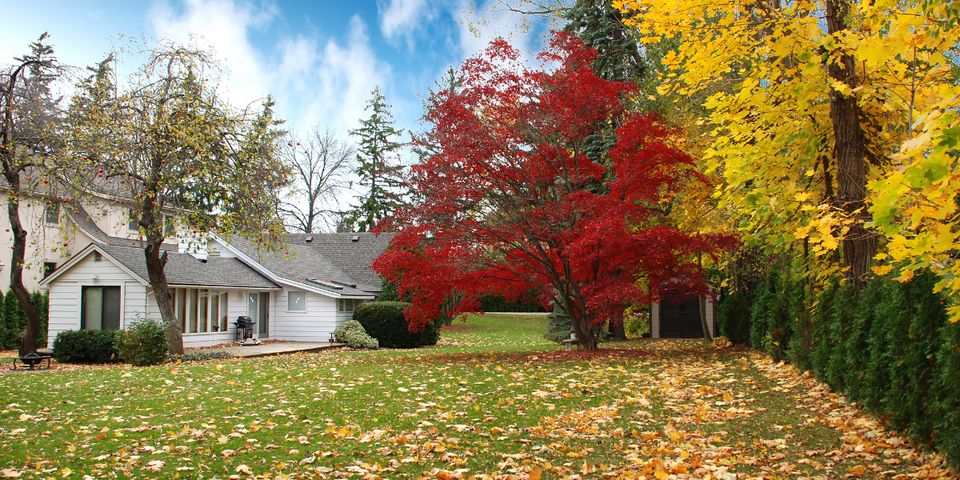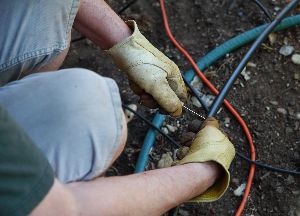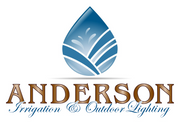3 Key Reasons to Winterize the Lawn

Like many plants in temperate areas, the grasses in your lawn often cease growth during the winter and hibernate until warmer weather arrives. But while this process may be natural, your landscape and irrigation system still need a little extra support to make it through the season. To help you keep your grass healthy and your irrigation system intact, here are a few ways that professional lawn winterization protects your landscape and equipment.
How Do You Winterize a Lawn?
1. Perform an Irrigation Blowout
When temperatures get below freezing, water inside irrigation pipes can freeze. As the ice expands against the plumbing, the pressure will eventually cause pipes to rupture. If the water line is active, the landscape may flood, causing considerable damage. Burst pipes are difficult and costly to repair, so it's best to avoid the situation altogether.
Fortunately, contractors can protect against these problems by winterizing irrigation systems. During this process, they will shut off water connections and blow moisture out of the system to prevent freezing.
2. Store the Backflow Preventer for Winter

This crucial component acts as a stop-gap between your drinking water and the water from your lawn. Because lawns are often treated with pesticides and other contaminants, the water that flows off of them is not safe to drink. The backflow preventer ensures unsafe water doesn't get into your tap water.
Often made with an exposed copper pipe, a backflow preventer is particularly vulnerable to freezing temperatures. Since you won't be running the sprinkler system during winter, it's best to remove the backflow and store it inside where it'll be safe from the elements. Be sure to drain the water first.
3. Complete These Steps as Early as Possible
Freezing temperatures can come on suddenly and unexpectedly, leaving your irrigation system damaged if the proper precautions haven't been taken. To avoid this situation, winterize the system as early as possible, and don't risk freezing temperatures. By October, your grass should be going dormant and won't need any more water. Winterize the system at this point. If you have to wait longer, you must finish the process sometime in November, ideally within the first three weeks.
Keeping a luxurious lawn is effortless when you trust in the services of Anderson Irrigation and Outdoor Lighting. Serving residential and commercial customers in Williamsburg, OH, this contractor offers complete irrigation support—including winterization, backflow testing, spring startup, system repairs, and new installation services—to keep your grass healthy and hydrated. Visit this specialist online to learn more about these services or call (513) 724-0472 to request a free estimate.
About the Business
Have a question? Ask the experts!
Send your question

